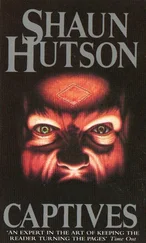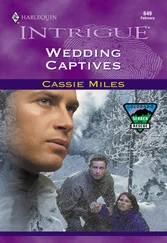Norman Manea - Captives
Здесь есть возможность читать онлайн «Norman Manea - Captives» весь текст электронной книги совершенно бесплатно (целиком полную версию без сокращений). В некоторых случаях можно слушать аудио, скачать через торрент в формате fb2 и присутствует краткое содержание. Год выпуска: 2014, Издательство: New Directions, Жанр: Современная проза, на английском языке. Описание произведения, (предисловие) а так же отзывы посетителей доступны на портале библиотеки ЛибКат.
- Название:Captives
- Автор:
- Издательство:New Directions
- Жанр:
- Год:2014
- ISBN:нет данных
- Рейтинг книги:3 / 5. Голосов: 1
-
Избранное:Добавить в избранное
- Отзывы:
-
Ваша оценка:
- 60
- 1
- 2
- 3
- 4
- 5
Captives: краткое содержание, описание и аннотация
Предлагаем к чтению аннотацию, описание, краткое содержание или предисловие (зависит от того, что написал сам автор книги «Captives»). Если вы не нашли необходимую информацию о книге — напишите в комментариях, мы постараемся отыскать её.
Captives
This is a moving account of a country shaken by communism and anti-Semitism and haunted by recent atrocities, from "a distinguished writer whose vision of totalitarianism is close to Kafka's cloudy menace, universal yet internalized" (Richard Eder,
).
Captives — читать онлайн бесплатно полную книгу (весь текст) целиком
Ниже представлен текст книги, разбитый по страницам. Система сохранения места последней прочитанной страницы, позволяет с удобством читать онлайн бесплатно книгу «Captives», без необходимости каждый раз заново искать на чём Вы остановились. Поставьте закладку, и сможете в любой момент перейти на страницу, на которой закончили чтение.
Интервал:
Закладка:
Narrowing, the street descended toward small houses with green, tapered roofs. Below, to the left, a shabby old abandoned building with elongated windows: the Jewish bathhouse. Before it, unharnessed horses chomped at the yellowing autumn grass, tethered beside carriage roofs, gray and damp. The street came to a halt in front of the former Jewish bath where another street curved up to the right. I was climbing up. At the crest, the two tiers of latticed windows: the high school.
It was quiet. Right now the little ants were listening to the schoolmaster ants and the police ants: they were waiting for recess, for the street — their brief dash toward freedom. Heard the grating of wheels behind me, the tossing of bells: a carriage.
— Greetings, young fellow, greetings! Let me know when you’re leaving.
His cloth cap gleaming like leather, the little red-haired coachman grinned at me with his same old enormous teeth. He greeted me familiarly, and I wondered if he knew about my victories and entanglements.
Oh, Father, you weren’t able to admit that I might be so impressionable that this man’s greeting could rattle me. I hadn’t the courage to show you this face of mine. From the very moment when I dared to tell you that any sister of mine needed to be named Eva or Dona, you let me understand — you wouldn’t encourage my delayed reactions. Out of prudence for my life, you naturally wanted to shelter me from complications. You simply didn’t have the courage to look at this gift of mine, even if it seemed negative from your point of view, so I tried to make myself the object of little prankish, premeditated games.
I was weak. I lacked tenacity. Maybe I lost my convictions too quickly, and imagined that this gave me the right to make anything of myself, anything at all. By the time the last “laurel” — legal adulthood — settled on my brow, I already knew: long ribbons of colored words unspooled from all the dirty streets, the moldy corners, and the filthy mouths. The words had blossomed, and they were proliferating, invading the wounded world. I couldn’t be prey to the pairing of words anymore, as I had been, as you were; this was a good justification for my desire to serve only figures, hypotheses, numbers, methods, clear, rigorous, measurable results — at any cost. I despised you when you urged me toward a career of rhetorical speculations, of “ultimate learning” — that whole domain made of words. You had remained their slave. There was an instant when I could have loved you for such gratuitous staunchness. Only, if I’d been too young to defend myself from the glamour of words, my parent really couldn’t have invoked any circumstance like that.
I was already separating myself from everything. You had no time to notice. You still owed me something, though, after a life that had tried you in so many ways because you were always ready to start over again: no matter where the thread had been broken, it would need to be retied. Father, you should have taught me that I had limitations, or that the cost of denying this is always too high. My alienation from myself ended by transforming me into a timorous beast, impoverished of beauty and innocence by too many old, innocent emotions. The shame I’m enduring now seems appropriate: it allies me with the lepers, who I can walk beside through trauma and silence, in defiance of the masquerade. The real education fondly reserved for my future only begins now.
The walls didn’t answer. The small streets were slippery in the damp autumn morning. I was eager to speak to him. A lump in my throat seemed to keep me from breathing. I was afraid of the enslavement that befalls overly correct people — starting from the night when I understood that you were listening to Mother without protesting, while she fed you examples of people who found time to arrange housing for themselves, and goods and benefits. I listened, afraid of everything that might happen, waiting for the aftermath of silence — the beginning of hesitation. My terror was no longer forceful; I wasn’t invulnerable anymore. If we’d been able to get close to each other back then, maybe we could have helped each other, and I wouldn’t have gone astray trying to return and reverse what seemed to be my destiny.
Hung onto the metal grillwork by my nails. A sense of suffocation. . a longing to have my revenge on the father who’d forgotten to love me at the right time and on the Party idol I’d been ready to choose as a surrogate father, but who, like Father, had been overly occupied with all the principles, words, and conversions of the day. Like Father, he’d shut himself up till late at night in the peculiar municipal building. The gate of the Austrian town hall was just a few steps away. Wrote a furious, insulting note. Hurried to a newsstand. Bought an envelope and glued it shut. Then it was a matter of writing the name of the one from whom I was separating with a blunt pencil: His Excellency, Comrade Mehedinţi, from whom I was separating, and there was nothing to do then but hand it to the porter as if handing over an ultimatum. Didn’t give him time to ask me questions. It was windy. Stomped through puddles, chilled me to the bone. Detoured around the stadium through the park full of bare, black trees. Sat down. Leaned against a wet, green backrest. A soft hand caught me around the waist.
— When did you come? Why didn’t you stop by our place?
Ileana Mehedinţi was pale. She was wrinkled now, with tired eyes. My astonishment was impossible to articulate. There was nothing to do but offer silent reassurance: I hadn’t forgotten her beautiful hands, or her voice that taught us to laugh again, or the way her Madonna’s face pursued us through the lairs of the war. There was no way to manage the fleeting images of the past that overwhelmed words and thoughts. There was nothing to do but let myself be led by her warm, aging hand. Hadn’t answered her. She remained silent. Neither of us speaking a word, I walked her to the front of the balconied house where she lived.
— Tell me, Ileana, would you still be able to do it today? — and out of pure friendship, out of the goodness of your heart? And you were so young, so. .
— I’ve thought of that myself, many times. I don’t know. Maybe I wouldn’t be able to anymore, maybe I wouldn’t have the same strength or as much trust in others. I have no right to answer. Only the events could tell — if they repeated themselves. It’s unknowable, and there’s no longer any need for me to know.
Of course, she might have imagined that the question touched on the present as well, that it had been put intentionally, that I wanted to force her hand to help us now, too. But her eyes were wet, and she didn’t suspect me of leading questions.
— I looked for your husband. I wanted to talk to him, and left him a note.
— Didn’t you know, he’s not there anymore? He was sent back to his old work from before the war — low-level work, as they say nowadays, at a carpentry workshop. It’s better, in a way. He’s been very sick for a long time. It’s his heart. He wasn’t getting any rest, day or night. If he wouldn’t distress himself so much. . it makes him sick.
I found the strength to cover her mouth, to stroke her white hair. I was an imbecile who writes idiotic notes to people with heart disease and leaves them at the wrong address. I would have returned to the official building to pick up the note, but gave it up. It had gotten late. Mother was certainly waiting with lunch. There was no point in my adding tension there.
Presented myself to the porter toward evening. He recognized me, even though we’d only seen each other for an instant. He had the experience that goes with being an official watchman.
— This morning I left you an envelope for Comrade Virgil Mehedinţi.
Читать дальшеИнтервал:
Закладка:
Похожие книги на «Captives»
Представляем Вашему вниманию похожие книги на «Captives» списком для выбора. Мы отобрали схожую по названию и смыслу литературу в надежде предоставить читателям больше вариантов отыскать новые, интересные, ещё непрочитанные произведения.
Обсуждение, отзывы о книге «Captives» и просто собственные мнения читателей. Оставьте ваши комментарии, напишите, что Вы думаете о произведении, его смысле или главных героях. Укажите что конкретно понравилось, а что нет, и почему Вы так считаете.












